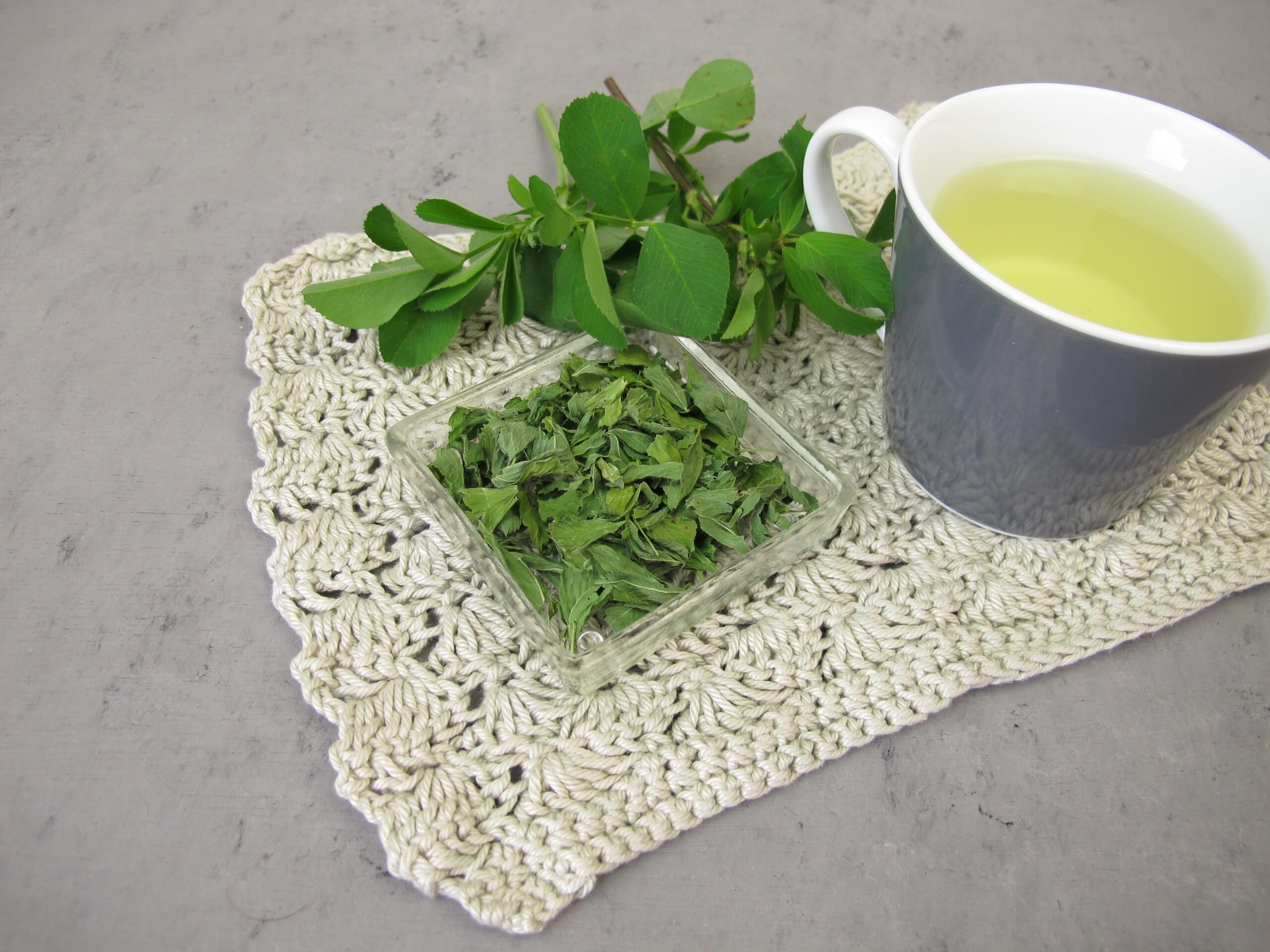Alfalfa is a plant rich in minerals, vitamins and plant compounds such as flavonoids, phytoestrogens, phenolic acids and saponins that are used to treat certain conditions and improve health. One of the ways to obtain its benefits is alfalfa tea, which helps with weight loss, controlling diabetes and protecting the liver.
The benefits of alfalfa are supported by science and it has been used for years as a home remedy, since it has “pharmacological properties such as anti-inflammatory and antioxidant activities,” according to a study published in Wiley Online Library.
Alfalfa is rich in vitamin K, providing 13% of the recommended daily amount in one serving, and is also rich in fiber.
Another benefit is that it could reduce bad cholesterol, since saponins are organic compounds in the plant that are known for the absorption of cholesterol in the intestines.
1) It helps with weight loss due to its high level of fiber and water that generate a feeling of satiety when consumed, which influences the loss of appetite and thus favors weight loss.
This food is low in calories, providing only 23 kcal per 100 g, so it is recommended to include it in diets designed for weight loss.
2) It prevents liver damage by containing a large amount of anti-inflammatory and antioxidant substances, including phenols and flavonoids that have a regulating effect on liver enzymes. This prevents liver damage caused by toxins and even nicotine, and also helps detoxify the body, according to a study by Wiley Online Library.
3) It helps control diabetes because it contains compounds that stimulate insulin secretion, which helps regulate blood glucose levels. Another element present in alfalfa, manganese in high quantities, has hypoglycemic properties.
This is how you can prepare alfalfa tea
One of the most popular ways to consume alfalfa is in tea or infusions prepared with the dried leaves and roots of this medicinal plant.
The preparation is similar to other teas, you only need to have 20 g of dried leaves and alfalfa root and half a liter of water on hand.
The first thing you should do is boil the water, turn off the heat and add the alfalfa. Then let it sit for about 5 minutes, strain it and add the sweetener of your choice. According to the specialized site, Tua Saude can be drunk up to 3 times a day.
Other ways to consume alfalfa

Alfalfa sprouts: can be incorporated into food for sandwiches, salads and other preparations.
Alfalfa capsules: sold in pharmacies and health food stores. They are prepared with the dry extract of this medicinal plant in doses between 400 mg and 650 mg of alfalfa per capsule.
Alfalfa consumption can be a dietary supplement, but it should not be seen as a medical treatment. It is recommended to consult a specialist to deal with health-related issues.
Contraindications and side effects
Like all foods, alfalfa should be consumed in moderation, otherwise symptoms such as excessive gas, abdominal pain or diarrhea may arise.
It is also important to take steps to properly disinfect alfalfa sprouts to avoid contamination with salmonella, E. coli and listeria.
This type of intestinal infection has symptoms such as intestinal cramps, severe diarrhea, nausea, vomiting, and fever.
Another recommendation is to avoid its use by children under 5 years of age, people over 65 years of age or those who have autoimmune diseases, such as systemic lupus erythematosus, rheumatoid arthritis, gout or multiple sclerosis.
It should also not be consumed if you are taking photosensitizing medications, such as antibiotics, antiarrhythmics, antidepressants, diuretics or skin ointments, as it can increase the risk of sunburn, Tua Saude reports.
Alfalfa consumption should be avoided by women who are pregnant or using hormonal contraceptives, estrogen hormone replacement therapy, or who have health conditions such as endometriosis, breast cancer, uterine cancer, ovarian cancer, or uterine fibrosis, due to the estrogenic effect of alfalfa.
Keep reading:
- Echinacea, a powerful natural anti-inflammatory
- Discover the powerful benefits of white tea
- Hibiscus flower water: a delicious nutritional treasure
